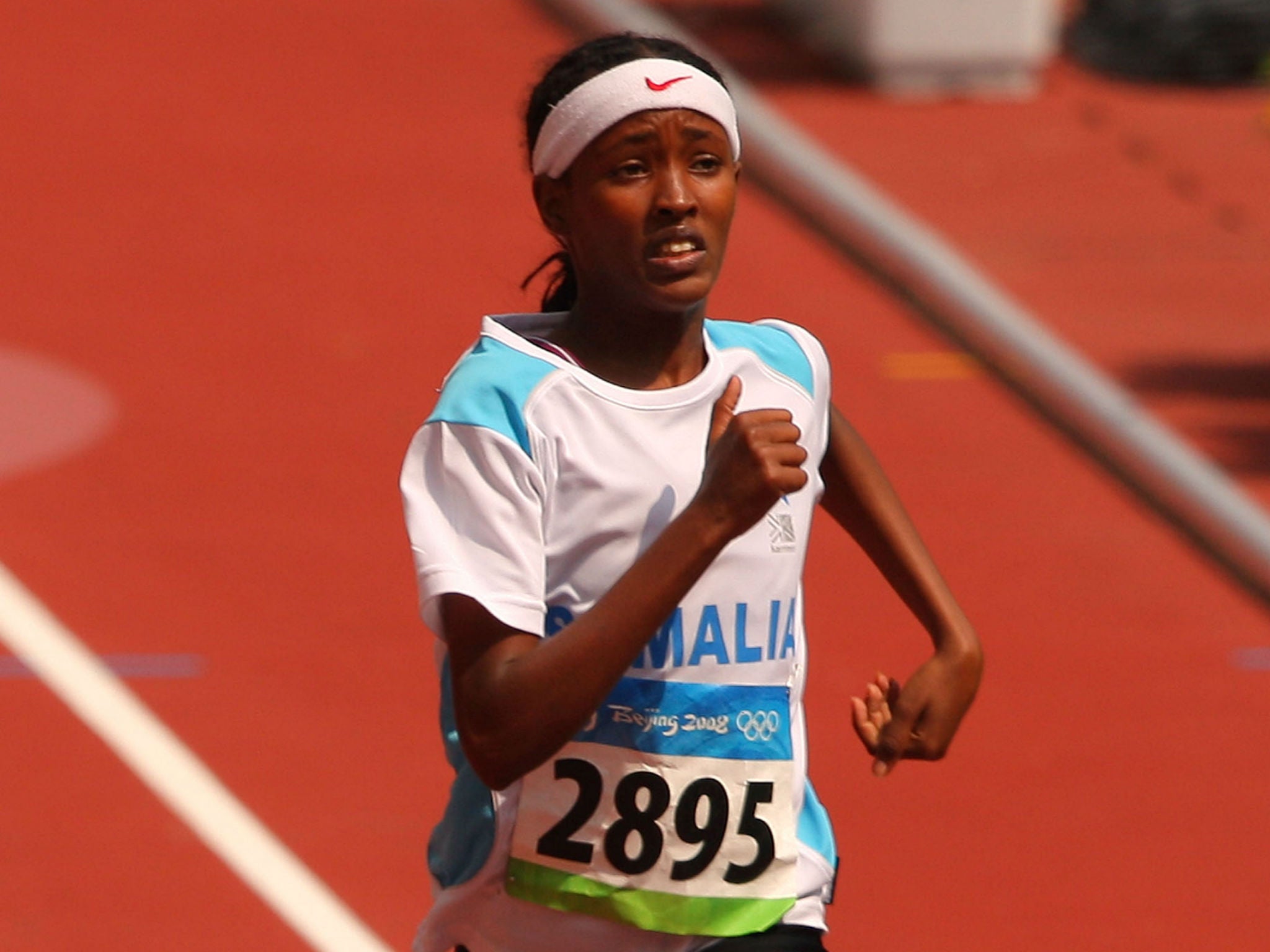Samia Omar, the displaced but determined Olympic athlete who drowned trying to cross the Med
Living in a country rocked by war and unable to train, Omar attempted to reach Europe by boat to secure a trainer and a chance at her Olympic dream

Your support helps us to tell the story
From reproductive rights to climate change to Big Tech, The Independent is on the ground when the story is developing. Whether it's investigating the financials of Elon Musk's pro-Trump PAC or producing our latest documentary, 'The A Word', which shines a light on the American women fighting for reproductive rights, we know how important it is to parse out the facts from the messaging.
At such a critical moment in US history, we need reporters on the ground. Your donation allows us to keep sending journalists to speak to both sides of the story.
The Independent is trusted by Americans across the entire political spectrum. And unlike many other quality news outlets, we choose not to lock Americans out of our reporting and analysis with paywalls. We believe quality journalism should be available to everyone, paid for by those who can afford it.
Your support makes all the difference.Ten athletes made history on Friday evening as they walked onto the stage at Rio's Maracanã Stadium to represent the first ever refugee team. Their stories are stories of survival, including the remarkable teenage swimmer who swam for three hours in open water to stop a boat carrying 20 from capsizing.
But Samia Omar, an Olympian sprinter who had once competed for her home country, Somalia, could not be among the athletes representing their countries. She drowned while trying to cross the Mediterranean Sea in 2012, aged 21.
Omar ran the 200-metre race in the Beijing 2008 Olympic Games, one of only two people chosen to represent a country rocked by conflict. The 17-year-old lived in the capital of Mogadishu and had left school to care for her five siblings while her mother worked.
Running in a white t-shirt and shoes donated by Sudan’s women’s team, Omar beat her personal record but came last in the race. After falling so far behind she fell out of the camera’s view the crowd began to furiously cheer her on.
Her training and performance was hindered by a lack of funding, resources, and later by the threat of al-Shabaab, who banned sports across all areas under their control. The Olympics were not broadcast by any television station in Somalia.
By 2010, Omar was living in a camp for displaced people outside of the capital and unable to train.
Still desperate for a chance to secure a coach and compete in the Olympics, Omar decided to attempt the perilous journey to Europe. By 2011, she had reached Libya after crossing through Ethiopia and Sudan. In 2012, she got on board on an overcrowded boat with 70 other people and set off across the Mediterranean Sea, heading for Italy.
Their boat ran out of petrol as it approached Italy and began drifting before being spotted by a rescue ship. In the scrum to grab ropes, Omar was one of a number of those on board knocked into the water, where she drowned.
Her sister Hodan told the press after her death that Omar was trying to get to Europe in the hope of finding a coach and competing in the London Olympics: “She decided to go by boat, and we told her not to, and my mother tried to tell her not to,” she said.
“But Samia was very determined and asked for our mother's forgiveness, and my mother gave it, and she took the boat, and she died.”
Omar has become a symbol of resilience and determination in even the most unfavourable conditions.
But during interviews after her 2008 Olympic run, Omar refused to answer questions about the hardship she had faced in her homeland.
“We know that we are different from the other athletes,” she told journalists in Beijing. “But we don’t want to show it. We try our best to look like the rest. We understand we are not anywhere near the level of the other competitors here. We understand that very, very well. But, more than anything else, we would like to show the dignity of ourselves and our country.”
Join our commenting forum
Join thought-provoking conversations, follow other Independent readers and see their replies
Comments